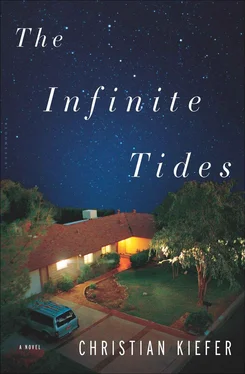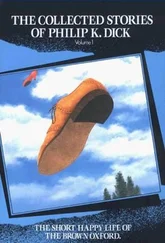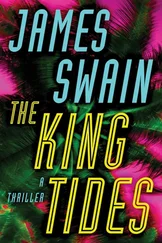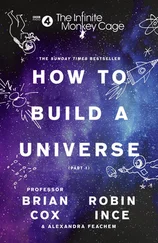They had set the sofa facing west, directly away from the end of the cul-de-sac so that their backs were to the neighborhood. He wondered why they had not situated the sofa in that direction from the beginning as it created a sense of solitude simply by its geography: the flat open space before the more distant darkness of the oak trees, the cinderblock wall of the next neighborhood all cut into silhouette from glowing backyards and, above them, occasional squares of lit windows that hung suspended in the warm summer night. The stars spun over everything as they did forever and always, although the view above them was no longer familiar. Cassiopeia, the constellation that remained the most recognizable to him, was visible now only if he craned his neck to the right. Instead there was a large and mostly unintelligible sky before him.
He had not yet asked Peter what constellations and astronomical features lay in his new view but realized with some surprise that he was actually looking forward to doing so. He wondered if this was a mark of how far his mind had slipped, that he sat on a sofa in the dark and sought distraction in the names of the distant stars and did so with little care for the work he might have been doing. There was a time when he at least would have thought of angles and distances and energy and light. At least that. But now he felt content simply looking up into the sky and listening to Peter’s discourse. The stars patterned in a way he would never truly understand but which was magnificent in its beauty. The distinction might have troubled him, but at the moment he did not feel troubled at all.
They talked at some length about Golosiiv again, about the kind of work Peter had done, about the landscape outside Kiev: horse-drawn carts and fields tilled by hand, lines of men and women bent over their work, each swinging the blade of a hoe and walking slowly backward in an ancient rhythm.
“Sounds brutal,” Keith said.
“But so beautiful,” Peter said. “Not like this.” He pointed over Keith’s shoulder at the cul-de-sac and then turned his hand and waved it generally around, encompassing everything around them. “So beautiful I cannot even describe. You would need being poet.”
Keith said nothing. He opened another beer and then settled back into the sofa. Peter took a moment to relight his pipe and puffed at it, the coal glowing red as he sucked at the smoke and then fading as Peter held and then exhaled.
“Where do you buy that?” Keith said.
“The smoke? From my nephew. He is … how do I say … kind of bad.”
“Kind of bad?”
“Mmm … I’m not clear. He does things that would be bad to talk about. Maybe not to talk about them, I think. That was not good English sentence. I apologize.”
“OK,” he said, chuckling. “Probably not a question I should ask anyway.”
“No, this is fine to ask question. I am not clear.” He paused a moment. “Some of my family, the young boys from my wife’s brother, they are like Mafia. They buy and sell sometimes things that are not for buying and selling. It was this way in Ukraine so this is what they know to do here.”
“At least they found a way to make money.”
“Yes, maybe true. I worry police will take them away.”
“What are we talking about here? Serious stuff?”
“I am not sure. They are seventeen and nineteen, the two of them. They have money to buy cars and fancy clothes. Too much money for little boys. I think this will not end well for them.”
“Maybe they’ll be fine.”
“Maybe,” Peter said. “They are stupid boys. They come to America and go back to what they are doing in Ukraine. This makes no sense to me.”
“Well, that’s what you wanted to do.”
“Do how?”
“You wanted to go back to what you were doing in Ukraine.”
“Not same thing,” Peter said. Then he said, “Well, maybe same thing.” He lifted his pipe to his mouth as if he was going to light it but then he did not do so, instead holding it there poised before his lips in the darkness. “Maybe I am too much like them I think,” he said.
“I doubt it,” Keith said. “Wanting to go back to working in your field is different than wanting to go back to a life of crime.”
Peter did not answer. At last he lit the pipe and sucked at it for a moment. A hush over everything. Keith found himself wondering if all the crickets had been crushed into dust by the tractors, if their desiccated husks were everywhere underfoot.
“If comet comes it will not matter who wants to go back and who does not,” Peter said.
“I suppose that’s true.”
“Yes, true. I do not think any comet is coming but still true.”
“It’s not front-page news yet.”
“Maybe they keep this from front page so we are not afraid of end.”
“Maybe.” He took another swallow of beer.
“The world is always coming to end,” Peter said. “Comet is coming or is not coming. So this does not matter.”
“Very philosophical,” Keith said.
“Not philosophy. True. Stars and galaxies are being born and dying. This is what you see when you look through telescope. Things sometimes crash into other things. Galaxies absorb other galaxies. These things happen. The world is always coming to end.”
Keith paused. Then he said, “Let’s party like it’s 1999.”
Peter was quiet for a moment and then started to giggle. “I know this song,” he said. He giggled again and then was caught up in the moment and laughed long and hard. Keith smiled, watching as Peter caught his breath and then exploded into laughter again. “You are funny man, Astronaut Keith Corcoran,” Peter said at last.
“Apparently,” he said.
Peter took another pull at the pipe and then came and sat next to Keith on the sofa. “I can’t think of what to look at now,” he said. “I have forgotten what I was doing.”
“You’ve been smoking a lot.”
“Is that so?”
“It is,” Keith said. “I’m going to have to finish the whole six-pack to keep up with you.”
“You should take up pipe. Not healthy for you to drink so much.”
“Is that so?”
“Yes.”
They were silent. Then Keith said, “Let me try that.”
Peter handed him the pipe and the lighter and Keith lit the small bud in the bowl and sucked at the smoke and held his breath as he had seen Peter do many times. His throat burned and he wanted to cough but held back until he could no longer do so, erupting into a long dry series of choking, gasping coughs that doubled him over. “Christ,” he said when it was over.
“You need practice.”
“I need a beer.” He handed the pipe back to Peter and then finished his beer and reached into the cardboard box for another. “You want?” he said.
“Not for me,” Peter said. “When I drink and smoke at same time I end up at Starbucks making myself into fool.”
“Yeah, we don’t want that to happen again.”
“No,” Peter said. “I am being fool.”
“Past history.”
“Yes, but still true.”
They did not speak for a time and Keith felt himself drifting, the alcohol and the single lungful of marijuana mixing with his daily painkillers, a sensation that had begun to feel familiar to him and one he relished during these nights on the sofa. He could feel gravity loosening its hold, the sofa dissolving into a weightless object beneath him so that his body seemed to pull away from its overstuffed cushions, a tiny gap, two small for measure, opening between his body and the sofa. As if he was escaping gravity by degrees. As if he had begun, just barely, to rise.
His head lolled against the back of the sofa, eyes staring into space, tracing fake constellations absently. A fish. A box, slightly askew and desperately empty. A series of triangles, the angles of which resolved into numbers. He superimposed Quinn’s face amidst the stars and tried to resolve it into a constellation but the best he could do was a lopsided and dented oval. And yet he could still see her face in his mind. There was no conception of heaven that he could place her into. Lost, then.
Читать дальше












